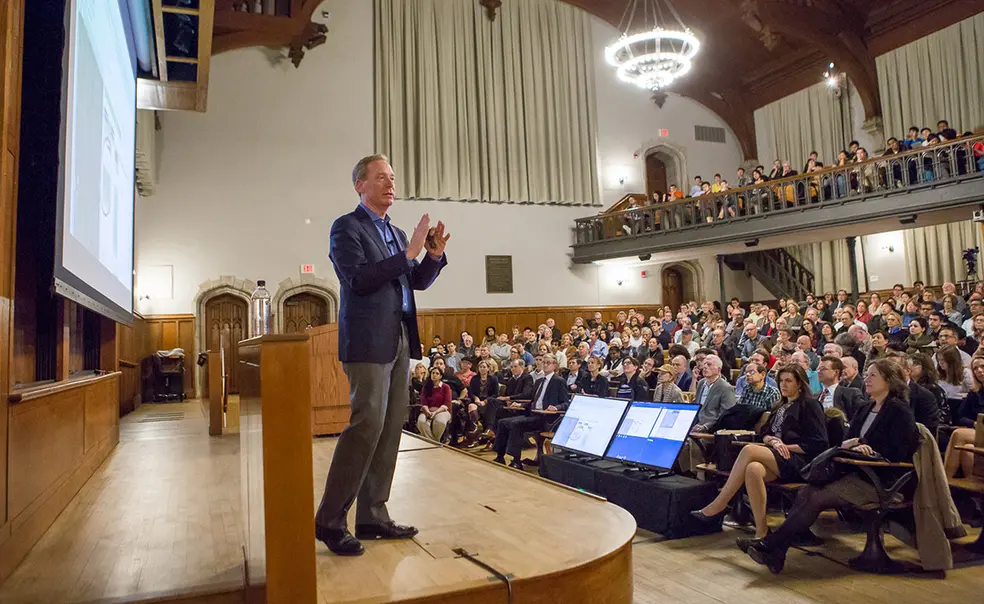Microsoft’s Smith ’81 Discusses Pros and Cons of Artificial Intelligence
Microsoft president Brad Smith ’81 is calling for a global conversation around shared principles to encourage the use of artificial intelligence (AI) for good and to prevent it from causing harm.
We must “wake up” to the ethical dilemmas and economic threats AI brings while recognizing its potential benefits, Smith said in a March 1 lecture in McCosh 50.
Mentioning the Great Depression, Smith asked, “In some ways, the most sober question for us is can we do better in the 21st century than we did a century ago? Or will we have to go through some other calamity before we wake up and do what the world requires?” Smith said.
“Even as we embrace these exciting things, we do need to wake up, and I don’t think we’re quite fully awake,” he said.
“It’s a lot easier to identify the jobs AI will replace than the jobs it will create,” Smith said, predicting that the jobs most likely to be replaced are those that require basic language and vision skills. “It is highly likely that in the next five years we’re going to be driving up to drive-thrus and we’re not going to be talking to people, we’re going to be talking to computers.”
At the same time, he said, some jobs cannot be replaced by AI, especially those relating to “human ingenuity, human creativity, and perhaps most important of all, human empathy and interaction.” Examples of these include nurses, teachers and social workers.
Smith compared the possible impact of AI to that of the automobile a century ago, a case in which people were talking about a new technology many years before it was widespread and became “like a tsunami.”
Artificial intelligence could have a “profound” impact on the lives of people with disabilities, he said, providing vision recognition for the blind and sound recognition to the deaf, for example. But he worries about whether these benefits would be available to all people with disabilities or limited to those who can afford it, bringing up the broader issue of accessibility of AI.
Smith described other ethical questions raised by the development of artificial intelligence.
“One of the great questions of our time is not, ‘What is it that computers can do?’ but ‘What is it that computers should do?’ ” Smith said. He asked how we can ensure that artificial-intelligence innovators are held accountable, suggesting a type of Hippocratic oath for AI developers. He also asked how we can avoid encoding bias into AI systems as they become more like humans that make decisions and have preferences.
Artificial intelligence will provide jobs for those in both the computer science field and the humanities and social sciences, Smith said. He praised the liberal-arts education model, saying that employees will benefit from knowledge of various disciplines.
“In many ways, skilling up for this future is actually about the humanities and the social sciences. Many people working in technology will come from the liberal arts,” Smith said. In an interview with PAW following the lecture, he praised Princeton’s computer science program — which has the largest number of majors of any department — for bridging the gap between computer science and other disciplines.












No responses yet